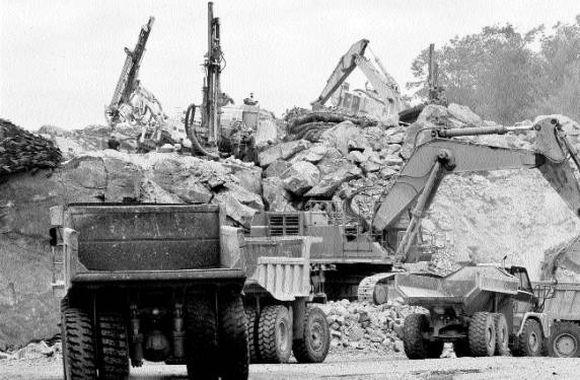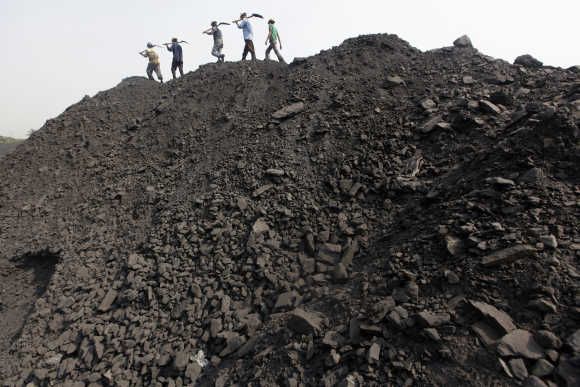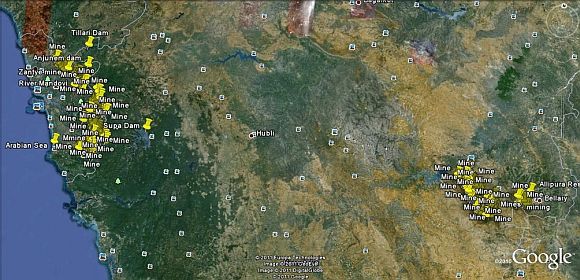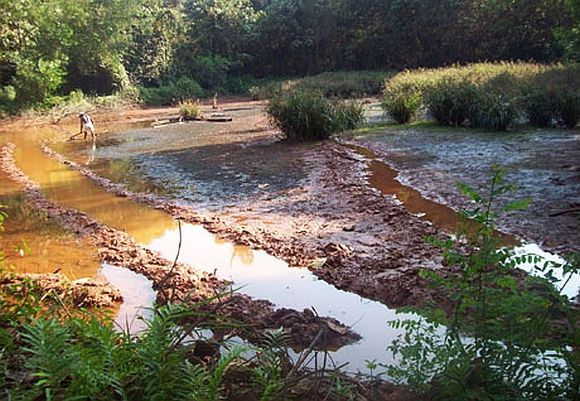
Vicky Nanjappa accessed the CAG report on illegal mining in Karnataka and finds out that the in the face of losses worth thousands of crores, the state administration had only been able to recover just Rs 7.22 crore
The estimate of losses put out by several agencies probing the illegal mining in Karnataka is shocking.
The latest is a report by the Comptroller and Auditor General of India, which has estimated the loss caused due to illegal mining at Rs 3,414 crore.
Ironically, the state government has been able to recover just Rs 7.22 crore.
According to Anita Pattanayak, principal accountant general (audit) of the CAG in Karnataka, if one goes by the current market value of the ore then the loss can be an estimated Rs 25,000 crore.
The current market value of iron ore is at Rs 4,800 per metric ton.
In its report tabled in the Karnataka legislative assembly, the CAG has made the estimation based on the amount of Rs 750 per metric ton of iron ore. Today, the market value is seven times higher and hence the figure of Rs 25,000 crore could be arrived at.
...

However, the Karnataka government, which had claimed that it had acted against illegal mining, had managed to recover just Rs 7.22 crore (as per the estimated value of Rs 750 per mt ton).
Former Karnataka Lokayukta Justice Santhosh Hegde, who had put out the first report on illegal mining in the state, had estimated the loss to be at around Rs 16,085 crore. This was a figure arrived based on the market value between 2000 and 2011.
The CAG report shows the sudden rise in illegal mining between 2006 and 2011. This was around the time the demand for ore had shot up during the China Olympics.
The report states that the department of mines and geology had accepted audit observations of Rs 1212.12 crore and had recovered just Rs 7.22 crore. The report also came down on the government for not having drawn up any plan to monitor the state's mineral policy.
Justice Hegde says that the valuation done by the CAG is very much in tandem with the report put out by him when he was the Lokayukta.
"The CAG agrees with the valuation done by us. We had done the valuation for 2000 to 2011 and we estimated the losses as per the market value of iron ore of each year. As per our estimates it was at Rs 16,085 crore. The CAG has estimated as per the value of Rs 750 per metric ton and hence finds the loss at Rs 3,414 crore. However, the loss is much higher if taken at the current market value of Rs 4800 crore per metric ton," he says.
...

The CBI, which is also probing the case, puts the loss at Rs 15,000 crore. It notes that Janardhan Reddy-run Obulapuram Mining Company alone caused a loss of Rs 5,100 crore.
The Supreme Court-appointed Central Empowerment Committee pegs the loss at around Rs 30,000 crore as per the current market value of iron ore.
The scene is equally bad in Goa too.
The matter, which was first probed by the Justice M B Shah Commission, says that the total loss caused to the exchequer of the state due to illegal mining is Rs 35,000 crore as per the current market value of iron ore.
The Central Empowerment Committee, in its report submitted recently, had estimated the loss at around the same amount.
...

The modus operandi of illegal mining in both the states remains the same.
In both the cases, it has been found that illegal mining took place with the blessings of the government. In Karnataka, it was the BJP, JD-S and the Congress which facilitated illegal mining. In Goa, the entire blame has fallen on the Digambar Kamat-led Congress government.
Thanks to the involvement of politicians, illegal mining flourished in both states.
The bulk of the mining was done in restricted areas such as forests which shook up the ecology of the region badly. Further, it was also found that ore more than the permissible level was ferried out of the region. This led to the loss to the states' exchequer